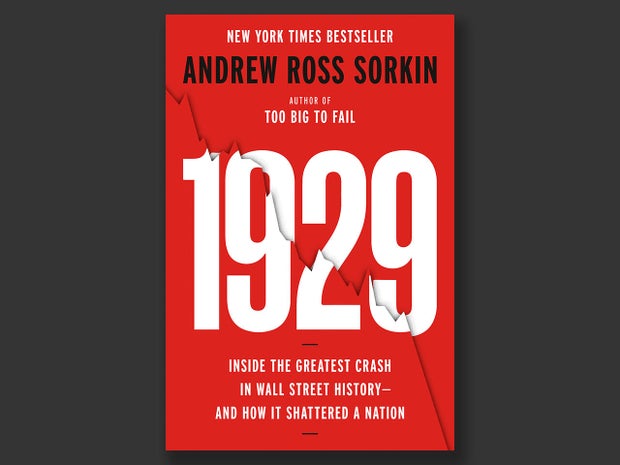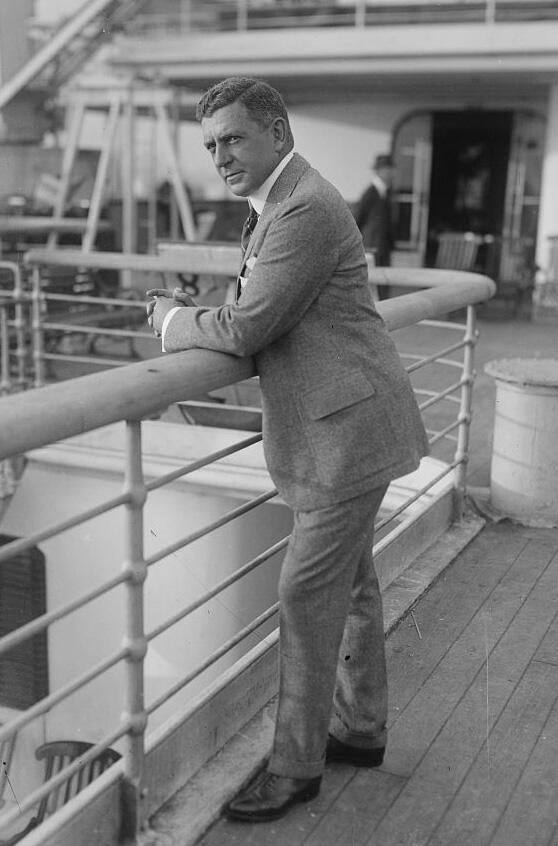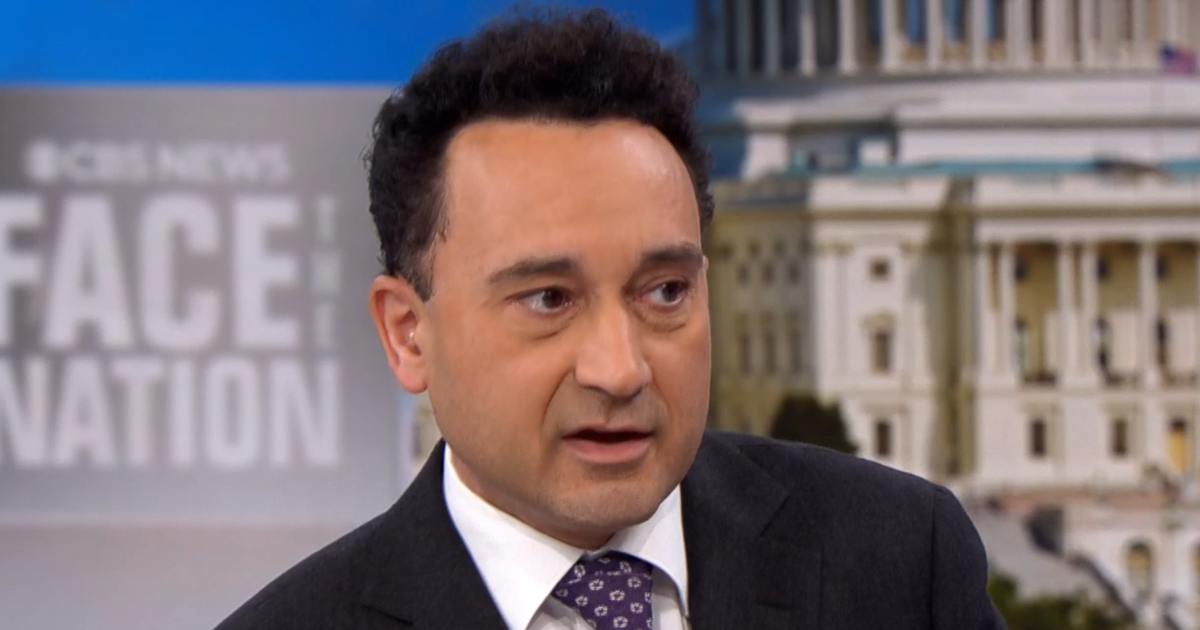 Viking
Viking
We may receive an affiliate commission from anything you buy from this article.
New York Times financial columnist Andrew Ross Sorkin's "1929: Inside the Greatest Crash in Wall Street History - and How It Shattered a Nation" (Viking) looks back to the nation's most catastrophic market collapse.
Read an excerpt below.
Prefer to listen? Audible has a 30-day free trial available right now.
Charles Mitchell strode up the steps of 55 Wall Street, determined to project his usual sense of confidence and certitude. It had been a crushing afternoon. As he returned to his office, he knew that the eyes of Wall Street were on him — everyone from the traders in the street to his own secretary was assessing his gait and searching his face, trying to read meaning into every twitch, every line, every wrinkle.
In his gray three‑piece suit, shoulders back, Mitchell kept up his smile as he passed through the glass‑domed central hall of his National City Bank. With its eighty‑three‑foot ceiling and two solid bronze doors protecting a safe weighing some three hundred tons, the bank was the largest in the country.
 Banker Charles Mitchell, c. 1925-29.
Library of Congress
Banker Charles Mitchell, c. 1925-29.
Library of Congress
It was just past 5:30 p.m. on Monday, October 28, 1929. Hours earlier, the stock market had closed with a sharp, dizzying drop of 13 percent after a week of downward convulsions; today was by far the greatest fall. The darkening downtown streets still teemed with anxious brokers in their fedoras and flat caps, messenger boys and switchboard girls, all gossiping and speculating about the collapse. What caused the fall? How much further might it go tomorrow? Would the markets even open?
As Mitchell made his way to his office, the teller windows he passed reflected the weary puffiness under his eyes and his disheveled, graying eyebrows. He collapsed into the chair behind his mahogany desk. The room was furnished with the high formality befitting an eighteenth‑century statesman: antique wood chairs, a grandfather clock that stood against the cream‑white woodwork flanked by portraits of George Washington orchestrating the newly independent nation with the purpose and resolve that Mitchell sought to emulate in his own life.
The athletic fifty‑two‑year‑old bank chairman — an unusually optimistic man whom the press called "Sunshine Charlie" — had spent the afternoon in emergency meetings at the Federal Reserve Bank of New York, puzzling over how to calm the market. It was a moment for which a self‑consciously Great Man like Mitchell should have been utterly prepared. He had the experience, the stature, and the steely nerves necessary to steer Wall Street through these tough times.
Yet he felt exposed, vulnerable.
But he didn't have time to consider his emotional state.
He walked upstairs to confer with Hugh Baker, who ran National City's stock‑trading unit.
Baker, a tall, bald man with piercing eyes, began to explain to Mitchell, calmly, if somewhat obliquely, what had taken place while Mitchell had been at the Federal Reserve.
"Our portfolio today has been tremendously increased in our holdings of National City Bank stock," Baker told him.
Mitchell stared at him, waiting to hear exactly what he meant.
Baker finally blurted out: "We purchased seventy‑odd thousand shares."
Mitchell, who could calculate numbers instantly in his head, immediately grasped the nature and scale of the problem. That is unbelievable, he thought. The bank didn't have the cash to pay for so many shares. He was outraged — and terrified. Everything he had built was suddenly at grave risk of collapse.
Barely a month earlier, Mitchell had been on top of the world. He had finalized an agreement to take over the Corn Exchange Bank, a bold acquisition that would turn National City from the largest bank in the country into the largest in the world, stealing the mantle from London and helping New York finally eclipse its rival city as the world financial center. This was history in the making, an overthrow of the established order, the kind of gambit that made Mitchell a king among men.
But to pull off the deal, Mitchell had made a big — and risky — bet on the strength of his own stock. Corn Exchange shareholders could take $360 in cash for each of their shares, or four fifths of a share in National City Bank. On paper, the stock was the better deal: As long as National City stock stayed above $450, four fifths of a share was worth more than $360 in cash. At the time the deal was struck, it was comfortably higher, trading at $496 a share. Mitchell needed it to stay there until the deal could be completed, likely in the next month — because, in truth, National City didn't have the cash to pay everyone, a crucial detail he kept to himself.
So he quietly instructed his traders to buy the bank's shares whenever the price slipped.
In a relatively stable market, this posed no problem. Big publicly traded companies bought back their own shares all the time. In a rapidly falling market, however, doing so could quickly become like shoveling money into a furnace, which was what had been happening that afternoon. In the chaos of all that selling pressure, National City's bids had been accepted so quickly that they lost track of how many they had amassed. By the time traders got a handle on the situation, National City had committed to buy seventy‑one thousand of its own shares, far more than it could afford to hold.
"With that news," he told Baker, "I could be knocked over with a feather."
There were very few good options. To fund their daily operations, big banks like National City had to constantly borrow against their assets. But banking law prevented them from offering their own stock as collateral. Thus, those seventy‑one thousand shares — which cost about $32 million — were a deadweight that could possibly take down the whole bank.
"It would be embarrassing for us to attempt to borrow on that stock in other banks," Mitchell said, knowing full well that his rivals would seize on any such move as a sign of vulnerability. With the market in free fall, short sellers — traders who bet that stocks would go down — were lining up targets, probing for weakness.
The stock market was at the breaking point. Sales volume had overwhelmed the human apparatus of the trading floor to such an extent that, on the previous Thursday, the ticker had fallen four hours behind in reporting stock prices, more than twice the longest previous delay.
What this meant was that the big board of prices that loomed over the floor of the New York Stock Exchange was hopelessly inaccurate. Trading stocks in this environment was like being a gambler at a baseball game in the eighth inning and looking at a scoreboard that hadn't been updated since the third, while everybody around you was shouting conflicting opinions about which team was ahead and by how much. The prices of stocks sold privately — known as "off‑exchange," which was the case with National City shares — were even further behind because they were tied to the broader market's movements without being fully updated in real time, exacerbating the delay. For Wall Street traders, the only prudent decision was to sell and get the hell out of the market. Which is exactly what they were doing.
Mitchell knew that if he tried to unload even a small fraction of National City's position back into such a weak market, rumors would begin to fly about the bank's solvency, and that could easily turn into a vicious cycle that would be impossible to stop. If prices declined fast enough, it could trigger a much larger crisis: A "lack of confidence might bring a run," Mitchell told Baker, envisioning depositors lining up outside every one of its fifty‑eight branches around the country.
A run on the country's largest bank. There was nothing bankers feared more.
From "1929," published by Viking, an imprint of Penguin Publishing Group, a division of Penguin Random House, LLC. Copyright © 2025 by Andrew Ross Sorkin.
Get the book here:
Buy locally from Bookshop.org
For more info:
- "1929: Inside the Greatest Crash in Wall Street History - and How It Shattered a Nation" by Andrew Ross Sorkin (Viking), in Hardcover, Large Print Trade Paperback, eBook and Audio formats
- Andrew Ross Sorkin (Bio Site)


















































